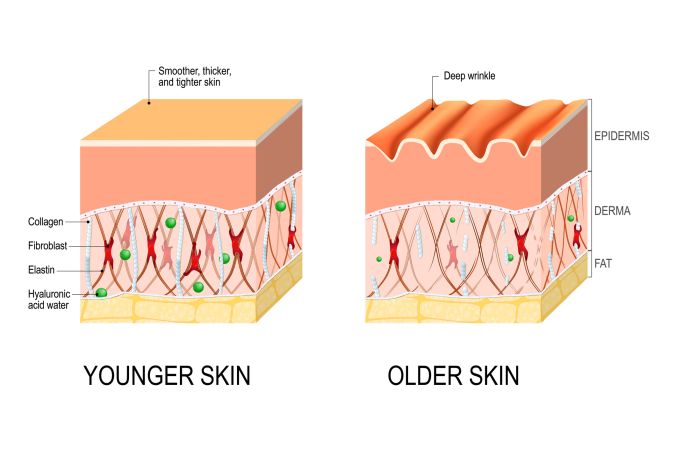


Collagen – what is it and why you should know about it.
Did you know that up to 35% of all body protein content is made up of one type of protein? This protein is a key component of our connective tissue – the most widely distributed tissue in the body, which binds, holds, supports and strengthens other body tissues, as well as insulating and protecting the organs. It makes up our ligaments, tendons, skin, joints, cartilage, bone and even the gut lining, blood vessels and our teeth! It is therefore absolutely vital to health and proper integrity and function on ALL body tissues and organs.
So, what is this protein?
We are talking about collagen, of course. You may have heard about collagen from face cream adverts, but as you can see, it does so much more than just preventing wrinkles!
Like any protein, collagen is made up of long chains of amino acids, however the high concentration of proline and glycine make collagen quite unique. There are several steps and enzymatic processes in collagen synthesis, and by the end, we end up with a three-dimensional and adaptable structure. The important bit to remember here, is that those enzymes require vitamin C. Without adequate supply of vitamin C this process won’t work efficiently, and without continuous collagen supply, we can end up with weak connective tissue and problems with our joints, skin, bones and so on.
Each of those tissues, whether it’s your joints or your skin, are structurally different. Some are more elastic and stretchy (e.g. tendons) whereas some are tough and rigid (e.g. bone). Apart from collagen, there are other important molecules that bind with each other forming a distinctive blend of material, each with different characteristics and functions. These include hyaluronic acid, glucosamine or chondroitin. Collagen often forms the backbone, onto which those other components attach, e.g. minerals such as calcium, phosphorus and magnesium in bones.
Common signs of weak connective tissue and decreased collagen synthesis:
- Decreased skin elasticity, sagging, wrinkles, easy bruising
- Joint problems such as arthritis, stiffness and pain
- Frequent sport injuries e.g. torn ligaments
- Broken facial capillaries – so called ‘spider veins’
- Bone problems – osteopenia, osteoporosis, fractures
- Rare conditions such as Benign Joint Hypermobility Syndrome (BJHS) and Ehlers-Danlos Syndrome, which are caused by genetic mutations
which disrupt the structure, production, or processing of collagen - Intestinal permeability, aka ‘leaky gut’
- If you have an inflammatory condition, there is a higher chance of collagen damage
- Collagen synthesis generally decreases with age.
But not all collagen is equal
In fact, our body produces various types of collagen, for example type 1, 2, 3 and so on. However, type 1 forms the vast majority of body collagen. Although we can buy collagen in powders or supplements, it is not guaranteed that it will be used properly in the body, because it is quite a big molecule and it gets broken down in the stomach, rendering it less useful. That’s why it is important to get the right type of collagen, with proven benefits. Marine Collagen displays high resemblance to human collagen and is therefore easily absorbed through the gut wall and quickly delivered to the target tissues. It can improve skin elasticity,4hydration and reduce the appearance of wrinkles. This form can also improve the synthesis of glycosaminoglycans (GAGs) – another component of joints, ligaments and tendons.
We also need to support the body’s ability to produce collagen and prevent it from getting damaged. In addition, we can provide other nutrients to support general connective tissue health. Here are some of the main ones:
Vitamin C increases collagen synthesis by acting as a co-factor for hydroxylase enzymes.
Rutin is a flavonoid which has antioxidant properties. It supports circulation, decreasing blood vessel fragility and permeability. It can be helpful for thread and varicose veins and reduce the tendency to bruise easily.
Hesperidin helps to spare collagen in connective tissue and reduces inflammation.
Hyaluronic Acid is a viscous substance found in different types of connective tissue like skin and cartilage, muscles, organs –e.g. brain and eyes. It is also found in synovial fluid, helping to lubricate joints, reduce friction and the skin epidermis, having a vital protective role and providing hydration. It can reduce the appearance of wrinkles with significant improvements in skin lustre and suppleness. It increases skin moisture in people with dry skin, whilst long term supplementation may improve symptoms of osteoarthritis.
Rosehips provide more vitamin C than citrus fruits18 and have high antioxidant activity. Rosehip’s anti-inflammatory and antioxidant properties makes it a potential agent for protecting joints and supporting osteoarthritis, by reducing degradation of joint cartilage.
Nucleotides are organic compounds which are part of DNA and RNA, essential for cell division, repair and regeneration of damaged tissue.
Glucosamine (and related compounds like chondroitin) form glycosaminoglycans and prevent collagen degradation and free radical production.
Antioxidants such as berry/cherry extracts, grapeseed and pine bark reduce collagen breakdown.
All of those nutrients together are much more powerful than a single ingredient. Because of the abundance of collagen in the body, supporting its production can potentially have many positive effects on our health.
Collagen boosting treatments like microneedling and skin resurfacing help to stimulate production of collagen with in the skin. Also introduction of Vit A in to your home care routine is a must when treating loss of skin firmness and elasticity.
Book your free consultation online at www.skinglowbeauty.co.uk
